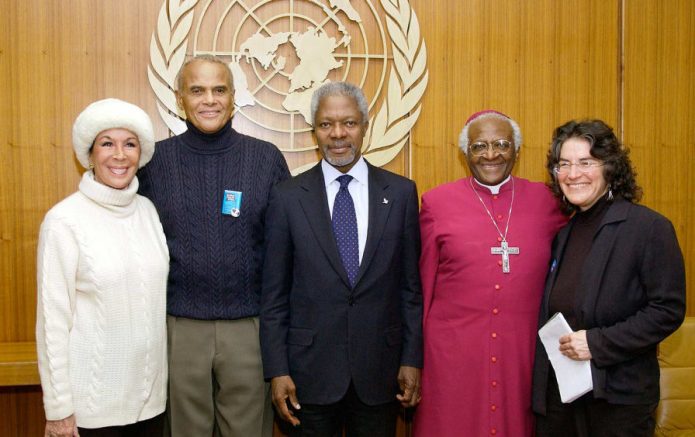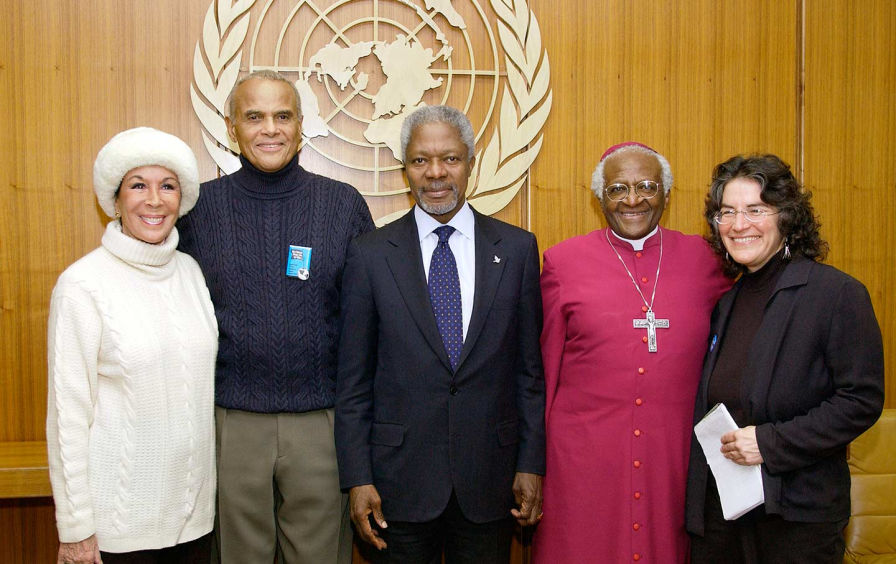
United Nations
Kofi Annan, the seventh secretary general of the United Nations, who died on Saturday at 80, was always complicated. His legacy is as complicated as he was. The first sub-Saharan African to lead the global organization and the first UN staffer to rise through the ranks to a leadership post that had always gone to someone from the outside, he was a reserved yet engaging diplomat. He consistently expressed a powerful level of concern for global poverty and human rights, as well as a human decency that often distinguished him from his imperious predecessors.
Just a week after the United States launched its war against Afghanistan in October 2001, the Nobel Committee announced that the Peace Prize that year would go to Annan, as well as to the UN as an organization. Two months later, he used the occasion of his Nobel acceptance speech to challenge the US exceptionalism inherent in George W. Bush’s war of revenge for the 9/11 terrorist attacks. He noted that for most people around the globe, the world did not change on September 11. “The old problems that existed on 10 September, before the attack, are still with us: the elimination of poverty, the fight against HIV and AIDS, the question of the environment, and ensuring we stop exploiting resources the way we’ve been doing,” he said. “All these issues…are still with us and I think we need to focus on them as well.”
…
